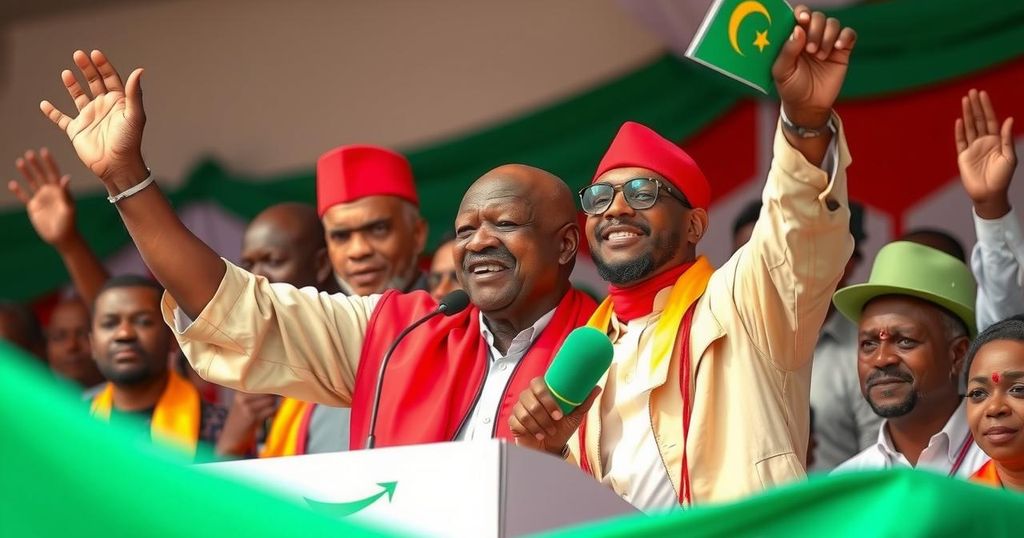Chad’s ruling Patriotic Salvation Movement won the parliamentary elections, capturing 124 of 188 seats, amid a boycott from opposition parties, which raised concerns regarding the election’s legitimacy. The electoral turnout was reported at 51.56 percent, and the elections are viewed skeptically by many as a continuation of undemocratic practices. The geopolitical context is further strained by security issues and changing military alliances.
The recent parliamentary elections in Chad have resulted in the ruling party, under President Mahamat Idriss Deby, claiming a significant majority. The Patriotic Salvation Movement secured 124 out of 188 National Assembly seats, according to provisional results released by the electoral commission. This election, which was marked by a notable boycott from opposition factions, was presented as the final phase of the nation’s transition towards democracy. Despite a reported voter turnout of approximately 51.56 percent, opposition leaders expressed skepticism regarding the legitimacy of the electoral process. They labeled the elections a ‘charade,’ worrying it mirrored the disputed presidential vote of the previous year. Moreover, these elections occur against the backdrop of ongoing security challenges in the nation, exacerbated by historical military ties to France, which are now under scrutiny following recent geopolitical shifts in the region.
Chad has a turbulent political background characterized by a lengthy period of military control following the death of long-time President Idriss Deby Itno. His son, Mahamat Idriss Deby, assumed leadership as a military ruler in 2021 and subsequently organized a presidential election that faced allegations of fraud. The December 29 parliamentary election was touted by the current regime as a significant step towards democratic governance, although it was met with substantial resistance from over ten opposition parties, voicing concerns about electoral integrity and the broader implications for democracy in Chad.
In summary, Chad’s ruling Patriotic Salvation Movement party has secured a majority in a highly contentious parliamentary election, which was largely boycotted by opposition factions. Despite claims of a democratic transition and the promise of decentralization, significant doubts remain regarding the legitimacy and credibility of the electoral process. The backdrop of ongoing national and security challenges further complicates the country’s path towards stable governance.
Original Source: www.aljazeera.com






